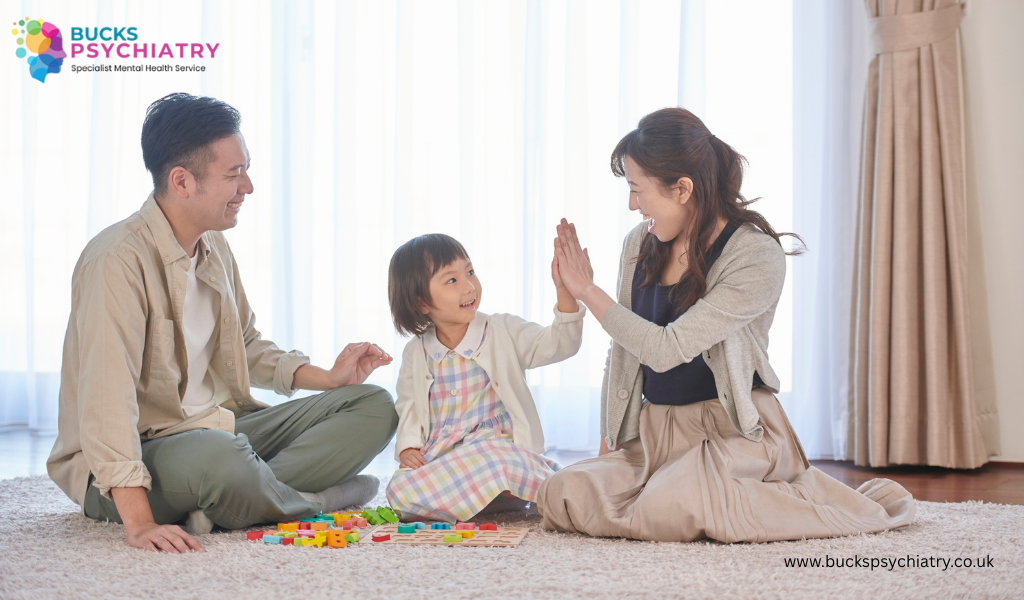Children need more than food and clothes to grow well. They also need to feel safe, loved, and understood. Mental health is about how we think, feel, and cope with everyday life. When children feel supported at home, they are better able to enjoy friendships, do well at school, and handle challenges. Parents and carers have a big role in this – and even small steps at home can help.
Make Home Feel Safe for Child’s Mental Health Care
Home should be a place where children can relax. They need to know they can talk and be themselves without being judged. This doesn’t mean everything has to be perfect. It just means children feel accepted.
Parents can help by:
- Listening properly when their child speaks.
- Putting phones or distractions away during chats.
- Staying calm when their child struggles to explain things.
- Even short, simple conversations can make children feel cared for.
Don’t Miss Out - Effective Interventions For Autism Spectrum Disorder
Handling Big Feelings
Children often feel things very strongly. They may shout, cry, or slam doors when they’re upset. This can be tough for parents, but it is normal. A child’s brain is still learning how to deal with strong emotions.
When this happens, it helps if parents keep calm. Instead of shouting back, try to comfort your child or give them time to cool down. It might take 15–20 minutes before they are ready to talk. Knowing this makes it easier to be patient.
Talking About Feelings
Children learn about feelings by how adults react. Let them know that all feelings are okay – happiness, sadness, anger, or worry. None of them are “bad.”
Not every child wants to talk straight away. Some might draw, write, or use play to show what’s going on. The important thing is to notice and accept what they share. Over time, this makes it easier for them to open up.
Finding a Balance
Every parent has their own style. Some like to be very protective, while others give more freedom. Both can be helpful, but balance is best.
Children need rules and guidance, but they also need chances to make choices and learn. For example:
- If your child struggles with homework, sit with them, but let them try to work it out.
- If your teenager wants to go out, set clear rules about time, but also show trust.
- This mix of care and independence helps children feel safe and capable.
Family Arguments
All families argue sometimes. What matters is how it’s handled. If arguments turn into shouting or blaming, children can feel worried.
Instead, try to:
- Take a breath before speaking.
- Listen to your child’s side.
- Work together to sort things out.
This shows children that problems can be solved without hurting each other’s feelings.
Daily Habits That Help
Taking care of your child’s mental health isn’t just about long talks. Small things you do every day can really help:
- Keep regular bedtimes and meal times.
- Make sure your child sleeps enough, eats healthy food, and gets some exercise.
- Spend time together – cook, go for a walk, play a game, or watch a film.
Say “well done” for trying, not just for doing well.
Doing these little things often helps children feel safe and loved.
When Extra Help is Needed?
Sometimes children find things harder than parents can handle on their own. They may stop enjoying their hobbies, have trouble sleeping, or want to be alone a lot.
If this happens, it’s okay to get extra help. Asking for help does not mean you have failed. It shows you care and want the best for your child.
Final Thoughts
No parent is perfect. Forget about all that and just make sure you can show all the love, all the patience, and all the care. Listening, sticking to daily routines, helping children talk about their feelings and handling arguments calmly all build a child’s internal sense of strength.
Children can long for, and would deeply appreciate, even small things – a smile, hug, kind word or time. Over time, these small, mundane moments help children grow up happy and healthy in their minds.
FAQ’s
1- What are 5 strategies to improve mental health?
Five ways to improve mental health are: staying active through regular exercise, eating healthy foods, getting enough good sleep, keeping close connections with family and friends, and practising calming activities like deep breathing or meditation to manage stress.
2- What activities help with mental health?
Activities that help with mental health include exercising, spending time in nature, talking with loved ones, practising mindfulness or meditation, enjoying hobbies, and getting enough rest.
3- What are the daily exercises for mental health?
Daily exercises for mental health can include walking, light jogging, yoga, stretching, or even simple breathing exercises. These activities help relax the mind, reduce stress, and boost mood.


